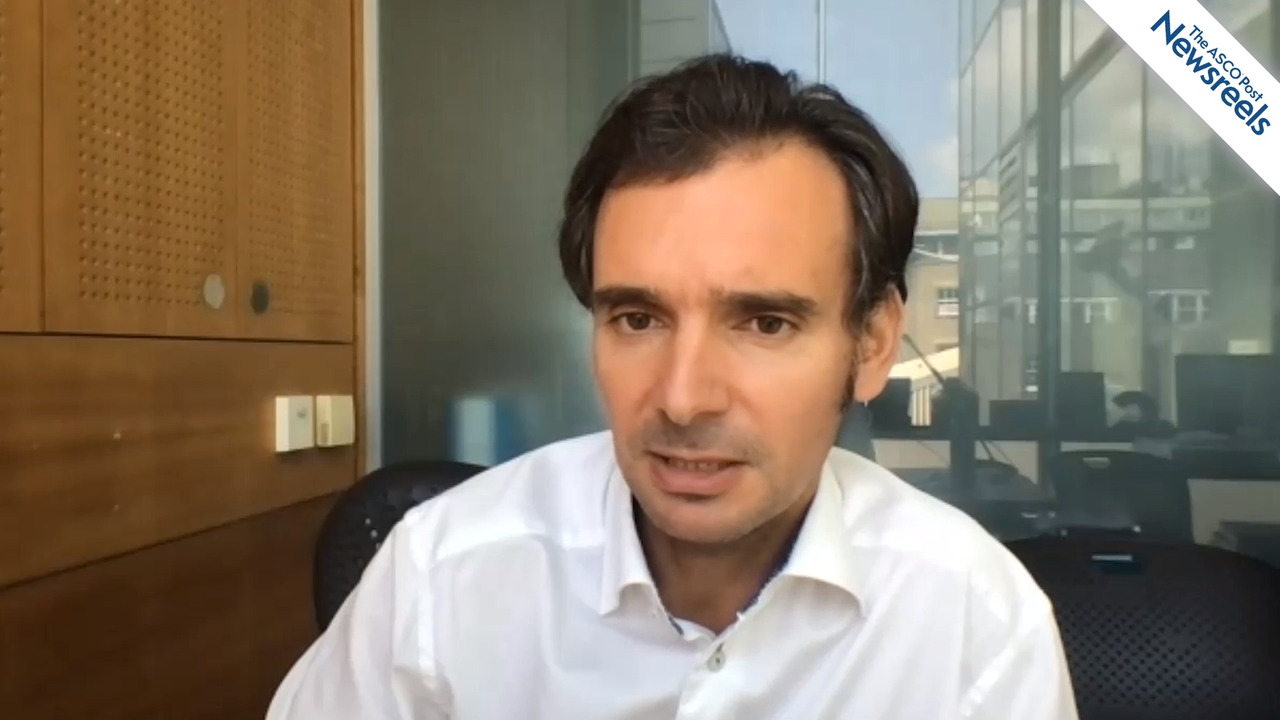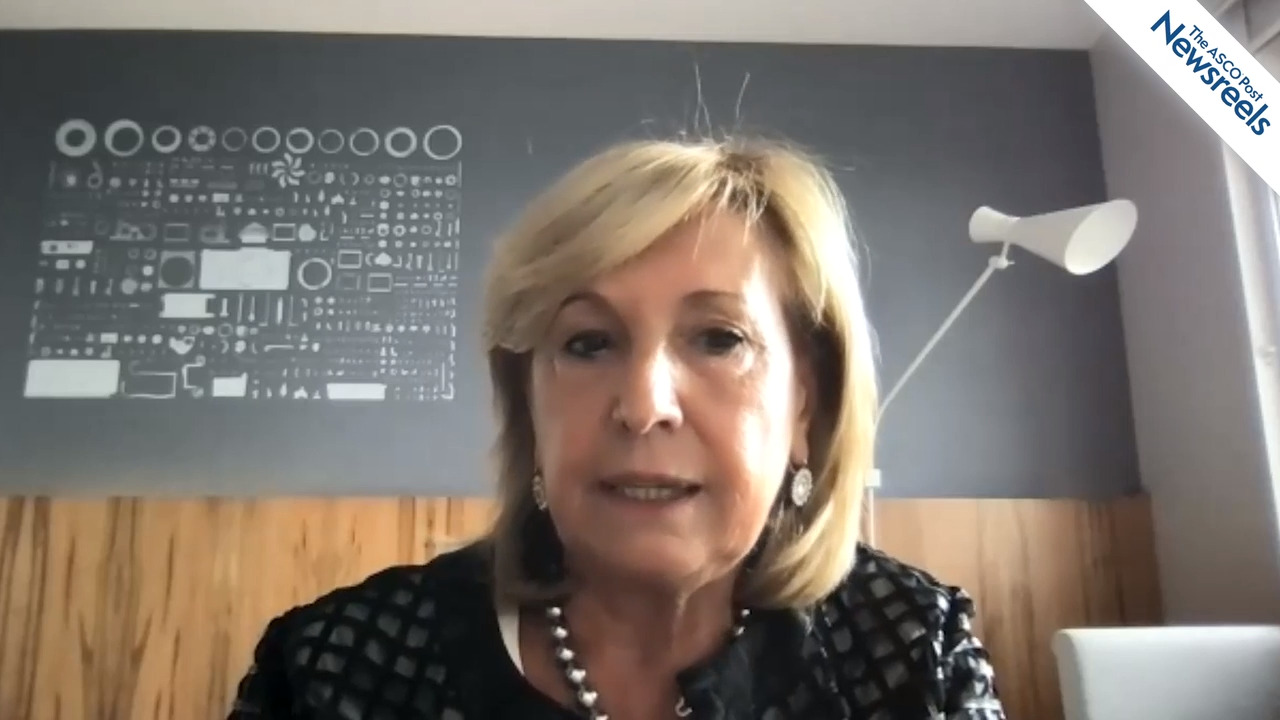Gabriel N. Hortobagyi, MD, on Advanced Breast Cancer Treated With Endocrine Therapy and Ribociclib
ESMO Congress 2021
Gabriel N. Hortobagyi, MD, of The University of Texas MD Anderson Cancer Center, discusses results from the MONALEESA-2 trial, which showed that adding the CDK4/6 inhibitor ribociclib to first-line hormonal therapy prolongs survival by 1 year for postmenopausal women with hormone receptor–positive, HER2-negative advanced breast cancer. As a result, he believes it should be considered the preferred treatment option (Abstract LBA17).
The ASCO Post Staff
Gerhardt Attard, MD, PhD, of The Royal Marsden NHS Foundation Trust, discusses findings that show 2 years of abiraterone acetate plus prednisolone-based treatment improves metastasis-free and overall survival in men with high-risk nonmetastatic prostate cancer. The data suggest this combination regimen might be considered a new standard of care (Abstract LBA4).
The ASCO Post Staff
Dieter Hörsch, MD, of Germany’s Central Clinic in Bad Berka, discusses phase III results from the SPINET trial, the largest prospective study to date of the somatostatin analog lanreotide autogel. The study suggests that this agent may prove to be an appropriate treatment option for patients with somatostatin receptor–positive bronchopulmonary neuroendocrine tumors, especially typical carcinoids (Abstract 1096O).
The ASCO Post Staff
Nicoletta Colombo, MD, of the Istituto Europeo Oncologico, discusses phase III results that showed improvements in progression-free and overall survival with a combination of pembrolizumab plus chemotherapy, compared with placebo and chemotherapy, for patients with persistent, recurrent, or metastatic cervical cancer. These benefits were seen regardless of PD-L1 expression and concomitant bevacizumab use, suggesting that pembrolizumab plus chemotherapy, with or without bevacizumab, may be a new standard of care for this population (Abstract LBA2).
The ASCO Post Staff
Susana N. Banerjee, MBBS, PhD, of The Royal Marsden NHS Foundation Trust, discusses phase II results of the EORTC-1508 trial, the first study to combine an anti–PD-L1 antibody, atezolizumab, with bevacizumab and the COX1/2 inhibitor acetylsalicylic acid as treatment for patients with ovarian, fallopian tube, or primary peritoneal adenocarcinoma (Abstract LBA32).
The ASCO Post Staff
Naveen S. Vasudev, PhD, MBChB, of the University of Leeds, discusses phase II results from the PRISM trial, which showed that giving ipilimumab every 12 weeks instead of every 3 weeks, in combination with nivolumab, led to lower rates of grade 3 and 4 toxicities in patients with advanced renal cell carcinoma. Efficacy appeared to be comparable between both arms (Abstract LBA29).





